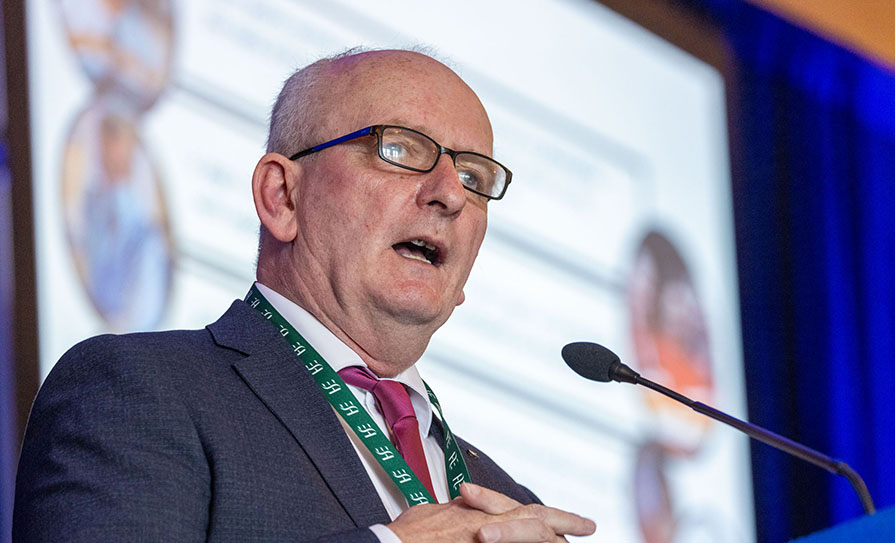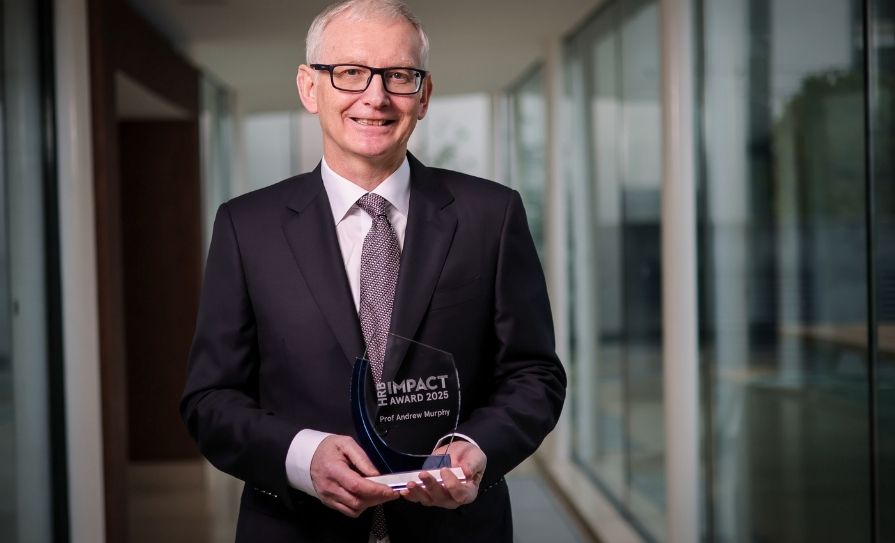The implementation of the long-delayed integrated financial management system has finally commenced, but the process has not been straightforward. Paul Mulholland reports
The need for an integrated financial management system (IFMS) for the health service has been recognised for two decades. However, the procurement of such a system was beset with problems from the early days of the HSE.
Shortly after the Executive was established, its financial information systems programme was suspended in October 2005 following a request from the Department of Finance to the Department of Health for a review. By that time, it had already incurred €30 million in costs, but was not yet operational. Ultimately, the Department of Finance formally terminated the project in 2006. Despite subsequent efforts to acquire a unified system, these endeavors faced continued setbacks, particularly due to the economic crisis of 2008 and the ensuing recession.
However, attempts to procure a system continued and progress was made in recent years, with a contract for the supply of software awarded to SAP UK Ltd in 2017.
The contract for implementation support was awarded to DXC Technology in December 2019. However, the project was subject to a re-plan in September 2020 after the first wave of the Covid-19 pandemic and the timelines were pushed back by six months. A second re-plan was done in July 2021, following the cyberattack on the HSE that May, which resulted in a delay of 12 months, with a revised date for deployment of 1 March 2024. Problems with the systems integrator caused further setbacks. This led to the decision to terminate the contract with DXC Technology at the end of 2021. As reported in this newspaper, documents published in December 2021 with the contract notice for a new systems integrator showed that the revised project schedule envisaged the complete implementation across the health system by the end of 2028. IBM was appointed as the new systems integrator in July 2022.
Commencement
Despite these issues, the first phase of roll-out of the IFMS commenced last year. The system went ‘live’ in implementation group 1 in July 2023. The group comprises: HSE East; Shared Services; National Distribution Centre; Primary Care Reimbursement Service; National Ambulance Service; HSE National and Corporate Services; and Tusla.
According to minutes of the HSE audit and risk committee meeting in October 2023, it is anticipated “the first of five implementations” in phase 1 will result in 80 per cent of all health expenditure being processed through the IFMS in 2025.
The committee welcomed that the initial phase of the project had started. It was noted at the meeting that there has been a “sustained focus” by the IFMS project team to support operations and end-users. However, HSE Chief Financial Officer (CFO) Mr Stephen Mulvany warned that “as with any major transformation programme of this scale… it is taking the HSE time to adapt to the changes”.
The committee acknowledged the project delays, heightened resource requirements, and the increased costs necessary to address implementation challenges. Furthermore, they observed that while “matters are being stabilised… supplier payments remain problematic”.
Suppliers
The problems paying suppliers through the IFMS had come to the attention of the national media around this time. In August 2023, RTÉ News reported how approximately 7,000 invoices from HSE suppliers were overdue or due for payment as a result of delays in processing payments through the system. In October, a story in the Irish Independent described how HSE suppliers were owed millions of euros in overdue payments as a result of continuing problems with the system.

The meeting of the audit and risk committee in December 2023 also referred to implementation issues regarding payments. The CFO told the committee that a technical issue arose where two large payment files relating to the HSE and Tusla were inadvertently paid twice.
“He advised that at the present time 99.9 per cent of the HSE duplicate payments, and 99.8 per cent of the Tusla duplicate payment have been recovered successfully,” according to the minutes.
The committee noted that a root cause analysis had been undertaken to ensure the error would not occur again.
Other issues
Implementation of the IFMS was also negatively impacted by the Fórsa industrial action in response to the HSE recruitment embargo. The trade union, which represents 30,000 health workers in the HSE and section 38-funded health bodies, said it had no choice but to lift its suspension on industrial action in response to the embargo announced in October. The decision was taken despite ongoing talks on a framework agreement. Further roll-out of the IFMS was among the work items Fórsa members were instructed not to engage in as part of the union’s response. The matter was discussed at a meeting of the audit and risk committee in February. The discussion was in connection with the Department of Health providing additional funding of €40 million in the HSE’s 2024 Letter of Determination for its national service plan with the purpose of accelerating the roll-out of the IFMS.
“These two developments necessitated a new re-plan on the basis of an accelerated implementation schedule, with agreement of an associated change to the system integrator contract,” according to Mr Mulvany.
He advised that in light of the recent resolution of the industrial action, a final and accelerated implementation plan was due for submission at the end of the month in preparation for immediate commencement.
HSE CEO
The Medical Independent (MI) spoke to the HSE CEO Mr Bernard Gloster about the IFMS at the IMO AGM in April. Mr Gloster admitted there had been “problems” during the first phase of roll-out. However, he said the HSE has learned from the experience and has “modified” its approach for further implementation.
“There are lots of historical practices about how we order goods and how we order supplies,” Mr Gloster told MI.
“When you introduce a system, like a SAP software system, or any type of system like that… the system has rules. So everyone has to practise the same. You cannot buy something without a purchase order, because if you do, the person who gives it to you isn’t going to get paid too quickly for it. So, there were system challenges. And we underestimated, I think, some of the change capacity requirements. But we have learned from that, so we are ready to take it on across the rest of the country.”
Future roll-out
Work commenced in February 2024 on an accelerated roll-out of the IFMS. The next two ‘go-lives’ for the system are due to occur in April and July 2025. Roll-out of the IFMS to voluntary organisations is expected to begin later in 2025 and continue into the following year.













Leave a Reply
You must be logged in to post a comment.